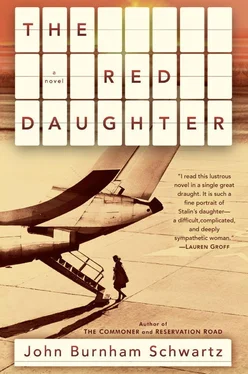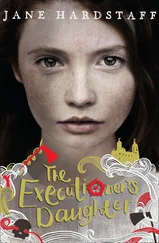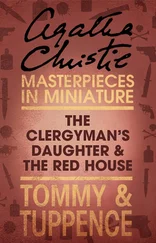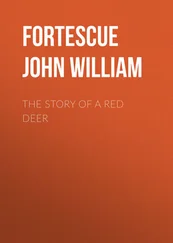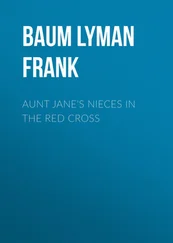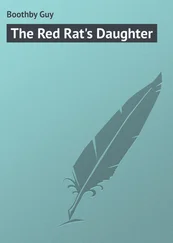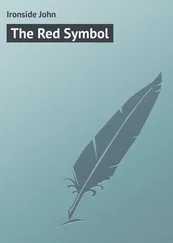“Mr. Staehelin?” Svetlana Alliluyeva said to me in a strong Russian accent, a lively smile on her face.
I stared dumbly at her.
“Our passports,” she explained in clear, excellent English. “We are the happy couple?”
“Yes!” I blurted out, suddenly remembering the names on our false documents. “Right. Sorry. I’m Mr. Staehelin. And you must be Mrs. Staehelin?”
By now I was smiling too, unable to help myself. Her Russian-accented English was rich and charming. Her blue, brown-streaked eyes radiated intelligence and an unfiltered vivacity that hit me where I stood. Her figure—in a gray skirt-suit that flattered without trying—was athletic, full-breasted but trim.
“I’ve come a long way to find you,” I heard myself saying.
“Yes,” she confirmed, “it is the same for me.”
Her smile retreated then, and I could only wonder at the life, and the woman, behind it.
—
We were the last people to board the plane. At my request, the Swiss stewardess brought us each a vodka martini almost as soon as we took our seats in the first-class cabin.
“Cheers, Mr. Staehelin.” Svetlana winked at me, raising her glass, her smile now willfully brave.
“Cheers, Mrs. Staehelin.” My own attempt at a wink felt more like a grimace.
Then we clinked glasses like astonished, intimate strangers who have just robbed a bank together and are escaping with the loot in broad daylight. But what sort of loot was this?
Too late to ask the question: we were already in the air.
An hour into the journey, the stewardess murmured in my ear that the pilot would like a word. I followed her to the cockpit—and there was accosted by a grim-faced aeronaut in a crisply pressed uniform who, for a Swiss, appeared apoplectic. No one had warned him of the dangerous, incendiary cargo he was carrying—he’d only just now learned the news from the control tower in New York. The daughter of Joseph Stalin ? Had he known, he would have refused to fly and faced the professional consequences. But now, obviously, this was no longer possible. We would have to hope that we were not all blown out of the sky by the fucking Soviets. And then on landing— if we landed—there would be the press to deal with. But that would no longer be his or his country’s problem—no, from then on it would be America’s problem. Good day to you, sir.
On my way back to my seat, even more rattled, I ordered second martinis for Mrs. Staehelin and myself. Having some inkling now of the historic madhouse awaiting us at Kennedy (more people to greet her, it would turn out, than were there for the Beatles in ’64), I offered to help her write out a simple public statement. But with a firm, confident set to her expression that, like the sadness buried in even her most winning smile, I would come to know better, Svetlana assured me that when the moment arrived she would feel most comfortable speaking her own words.
We finished our second round of drinks. Then she turned to me, hand warm on my arm and tears in her eyes, and confessed that at this moment she was missing her dear brother Yakov terribly. Yakov, captured by the Germans during the war, whose father, the Supreme Commander of the Soviet Republic, had refused to exchange him for a captured Nazi general, leaving him to die in a concentration camp. She never saw him again, the one brother she truly loved.
“You are like him,” Svetlana insisted. “You are like my Yakov.”
I could only shake my head. Because though I never knew this dead brother of hers and in fact hardly knew her yet, I believe I already understood that it was not her brother I hoped one day to be.
—
It was three weeks after I’d seen Svetlana’s obituary in The New York Times— mid-December, 2011, now, the early-darkening air just above freezing—when the UPS man rang my bell.
“Got two boxes for you today, Mr. Horvath—good-size.” He checked the return labels before handing them over. “Looks like somebody in Spring Green’s wishing you happy holidays.”
I stared at him: I had been to Spring Green, Wisconsin, only once in my life, for a wedding in the spring of 1970.
“Thanks, Mario. Happy holidays.”
I closed the door. My breath was starting to come shallow and quick. I half-carried, half-dragged the boxes into my living room one at a time, then cut the first open with a pocketknife. My hands were trembling.
A thick layer of bubble wrap obscured the weighty contents of the box. On top of the bubble wrap was a letter.
Dear Mr. Horvath,
Following instructions from my mother’s lawyer in Spring Green (a man she contacted through the yellow pages, apparently), I’m sending you all the papers and notebooks that were found in her apartment after her passing last month. In her will—copy attached to this note—you are listed as her literary executor. As you know, my mother and I had a pretty complicated relationship. I doubt there was any other sort of relationship to have with her, frankly. I’m sure you know what I’m talking about.
I’ve chosen not to read these journals of hers. That might strike you as weird or coldhearted, but I have a son of my own now, with his own name, and I don’t want him tainted by association with that monster, the grandfather I never met. I never read her memoir for the same reason. It’s not my son’s fault who his relatives are. Just as it wasn’t my mother’s fault.
Whatever you decide to do with this material, I’d rather not know about it. I hope you can understand that this isn’t personal—you were always kind to me when I was younger. If by some unfortunate turn of events you end up publishing part or all of these contents, please give any profits to a local arts organization or a charity for the homeless. I don’t want the money for myself or my family.
I loved my mother very much. I know you did too, in your way. And she loved you. Even if it was never very easy, ever, for either of us. Because that’s how she was.
I think it’s safe to say that, except maybe for the nanny who raised her, you and I were the only two people who ever really understood her.
There were times I wanted to pity my mom, but she wouldn’t let me. She had such a deep heart, and so many wounds, and this crazy courage that never gave up or let go. She could be fierce. She loved her children—all of us, however it may have looked to the outside world. She survived her life, which under the circumstances is maybe sort of heroic. And she came to know, finally, what real love was. Yes, I believe she did.
Thank you.
Yours sincerely, Jacob “Yasha” Evans
Inside the same envelope as Jacob “Yasha” Evans’s letter was the original copy of the Last Will and Testament of his mother, Lana Evans, formerly known as Svetlana Alliluyeva; formerly known, before that, as Svetlana Stalina.
The document was written in English on one of those generic forms that can be bought at certain stationery or copy stores or downloaded from the Internet for a few dollars, signed by her and witnessed by a notary public in Spring Green in the early autumn of 2011. It left Svetlana’s limited possessions and all her “private journals” to her son Jacob “Yasha” Evans. These journals were to be organized and “made into catalog” by her “appointed Literary Executor Peter Horvath, Esquire, of Princeton, New Jersey.” It was very like Svetlana, I thought, to consider her appointments firm and binding regardless of whether the appointee had ever been notified of his position.
That was the end of her will; but it was not the end of the document, whose final page, I realized only as I came to it, was a letter, also written in English. I recognized Svetlana’s handwriting at once—the way the P of my name seemed to lean down over the letters that followed, as if not sure whether to scold or to embrace:
Читать дальше
